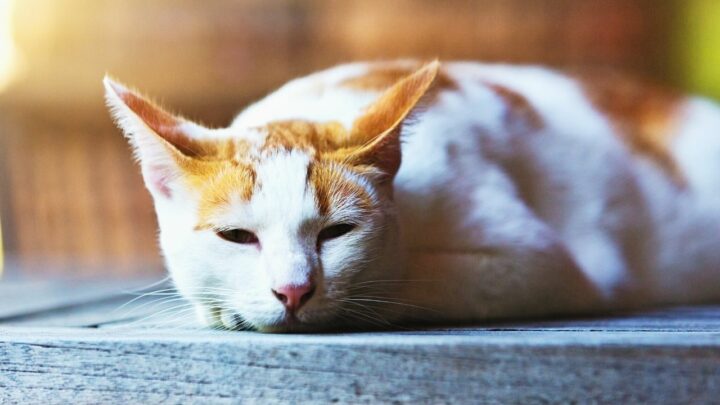I have always been a dog person, but recently, I received a kitten for my birthday. That was definitely a game-changer on my part.
Having always known that puppies can bark in their sleep, nothing prepared me for the twitching, near-convulsive state a kitten can reach when sleeping.
Naturally, I was concerned, so I spoke to the vet when I took my little kitten to the vet for her first vaccinations.
Why Do Cats Twitch in Their Sleep?
Cats twitch in their sleep because a cat’s sleep cycle has several stages. Other reasons include muscle spasms, the development of their nervous system with kittens, dreaming, and real medical seizures.
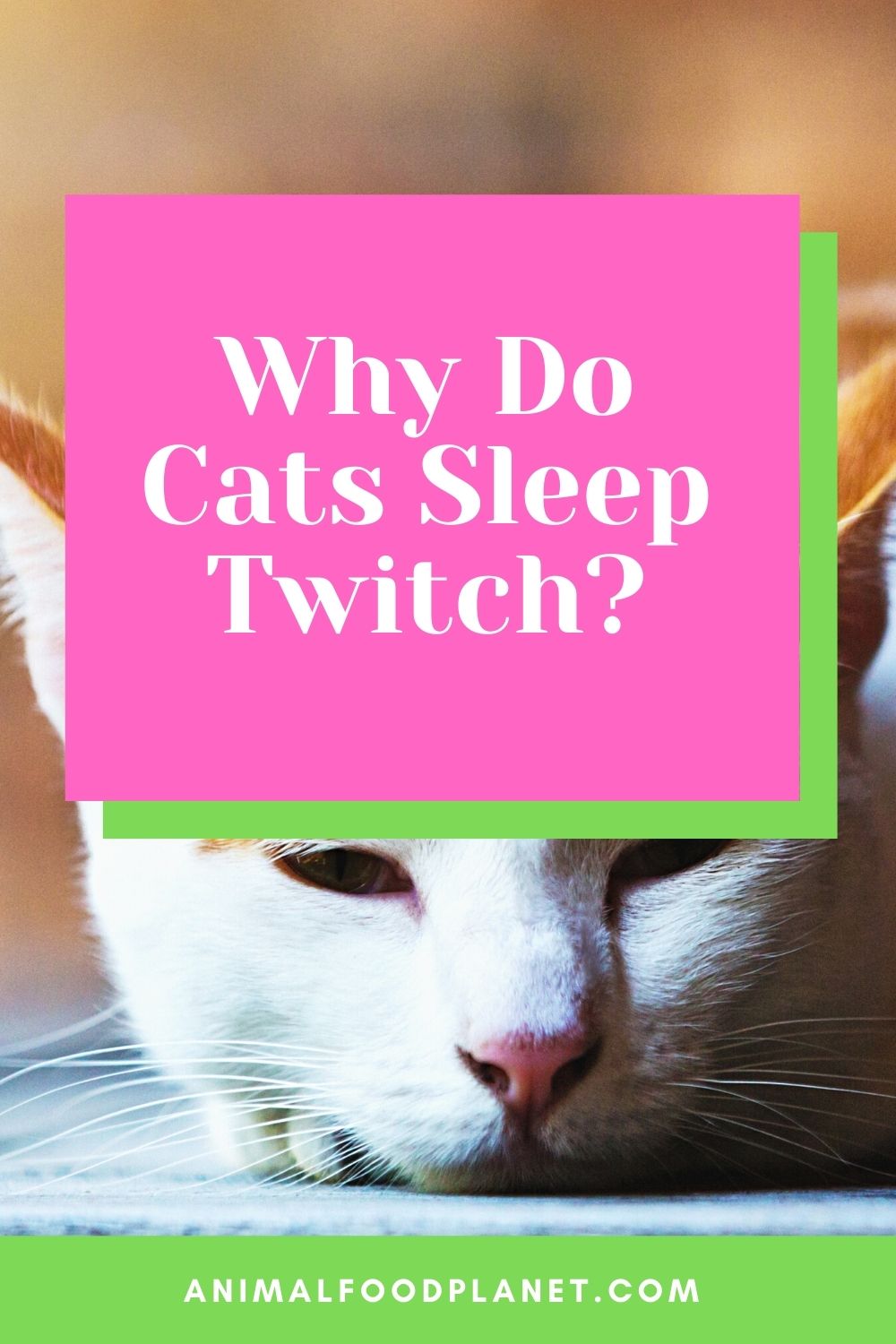
Why Do Cats Twitch in Their Sleep
Twitch Severity
My vet was helpful in explaining that there are different levels to twitching when a cat twitches.
If the twitches are mild and my cat didn’t seem in pain and showed no other signs with the twitching, it was merely a twitch.
However, a cat that twitches violently, gasps, or stiffens their bodies may be having a seizure or convulsion. This is serious, and your vet needs to check on your cat the soonest possible.
But how can you tell the difference between the two, and just why are cats twitching in the first place?
Why Do Cats Twitch in their Sleep – 5 Reasons
There are 5 reasons why cats twitch when they sleep.
1. Sleep Cycles
Your cat has different sleep cycles. After all, most cats sleep as much as 9-15 hours a day.
Their sleep cycles affect them in various ways. When cats are in their lightest stage of sleep, they are aware of what goes on around them.
Slight ear twitching may indicate this level of sleep.
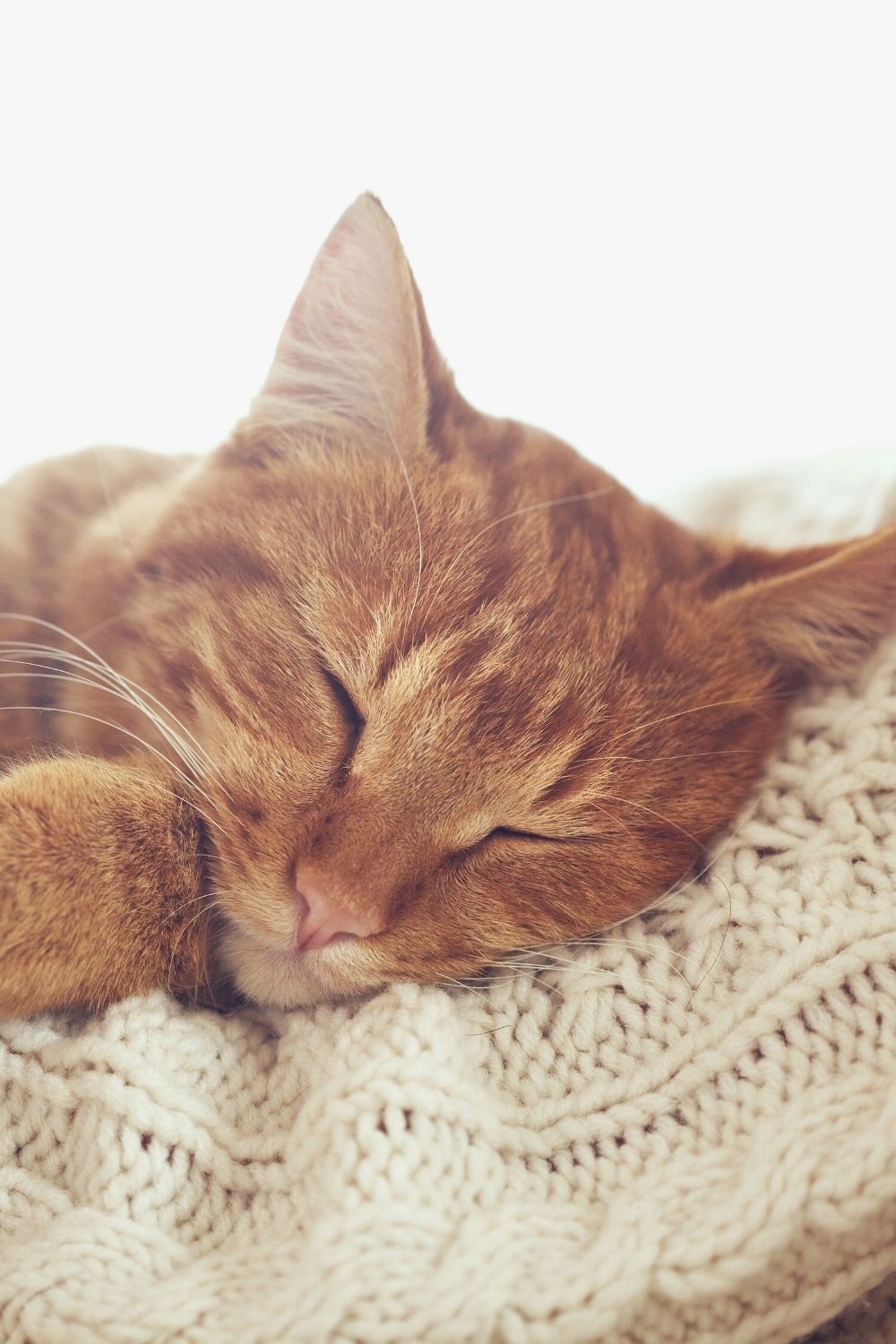
Cats twitch their ears slightly during sleep, indicating the level of sleep they are in
When your cat has reached the rapid-eye-movement sleep cycle (REM sleep), they will start dreaming.
You may notice kneading of the air and suckling sounds during this stage. It usually only lasts for 10-15 minutes at a time but may repeat frequently.
Young cats and kittens have an additional sleep stage that is deeper than dream sleep. This particular stage of sleep is known as activation sleep, and it is when a young cat’s nervous system forms new connection points.
Their neurons fire like crazy, which causes twitching.
2. Muscle Twitching
When your cat kneads and then displays slight tremors or spasms in its body, it is another kind of twitch.
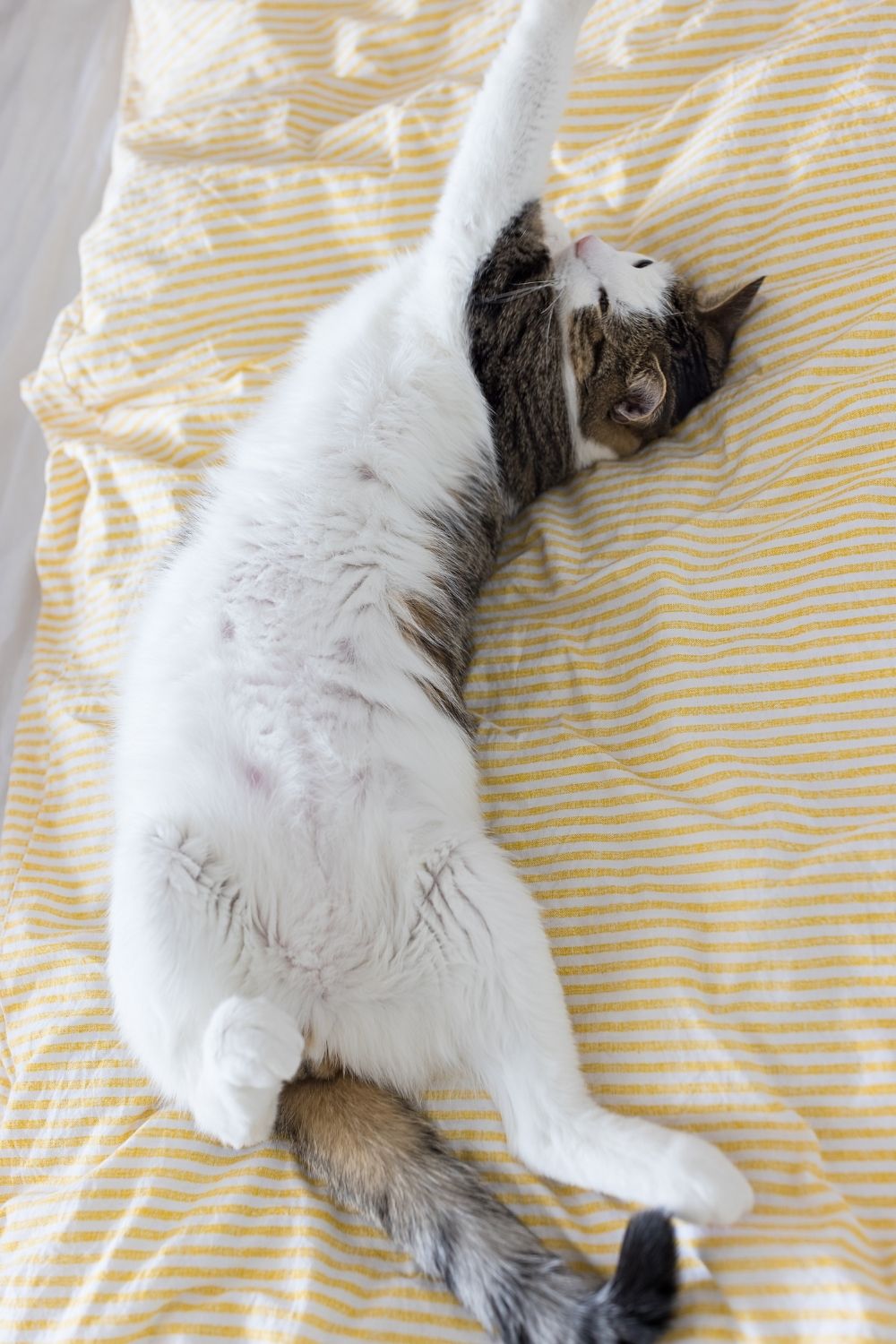
A cat kneading with slight body tremors is another kind of twitching in their sleep
Usually, there’s no need to worry about these kinds of tremors. It’s caused by the muscles in their body relaxing, briefly spasming, and then returning to normal.
Whether your cat is active or inactive, this is a common type of sleep twitching.
3. Maturation of the Nervous System
Cats have a really complex nervous system. This allows them to move with unique agility and hunt so effectively.
Kittens are born with an immature version of their nervous system.
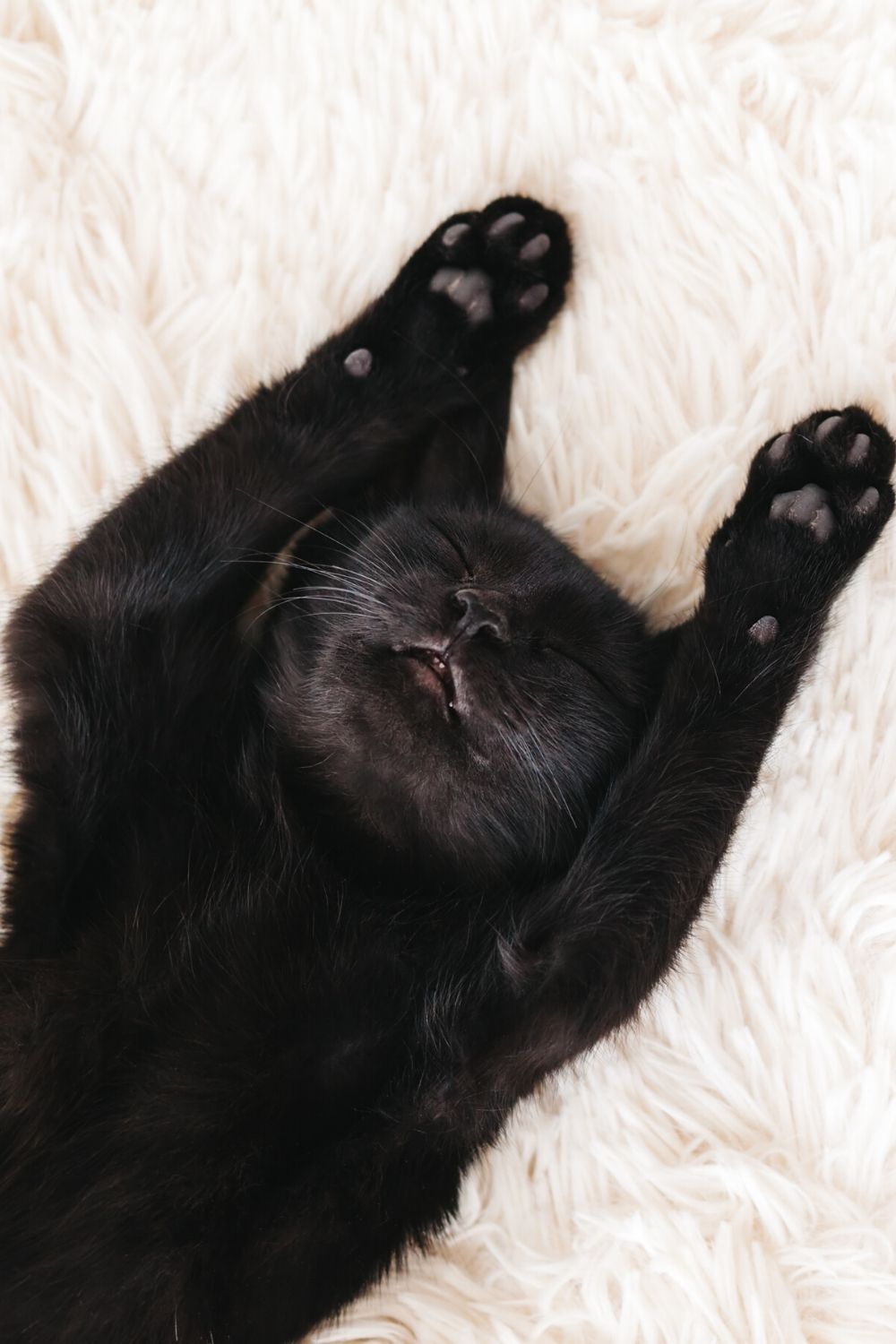
As a kitten’s nervous system has yet to mature, they sometimes twitch in their sleep
When the kitten sleeps, its brain develops, forming new neural pathways. As neurons fire, their muscles respond with twitching and irregular movement.
4. Dream Twitching
Like humans who move or develop restless legs when they sleep, cats can also experience dream twitching.
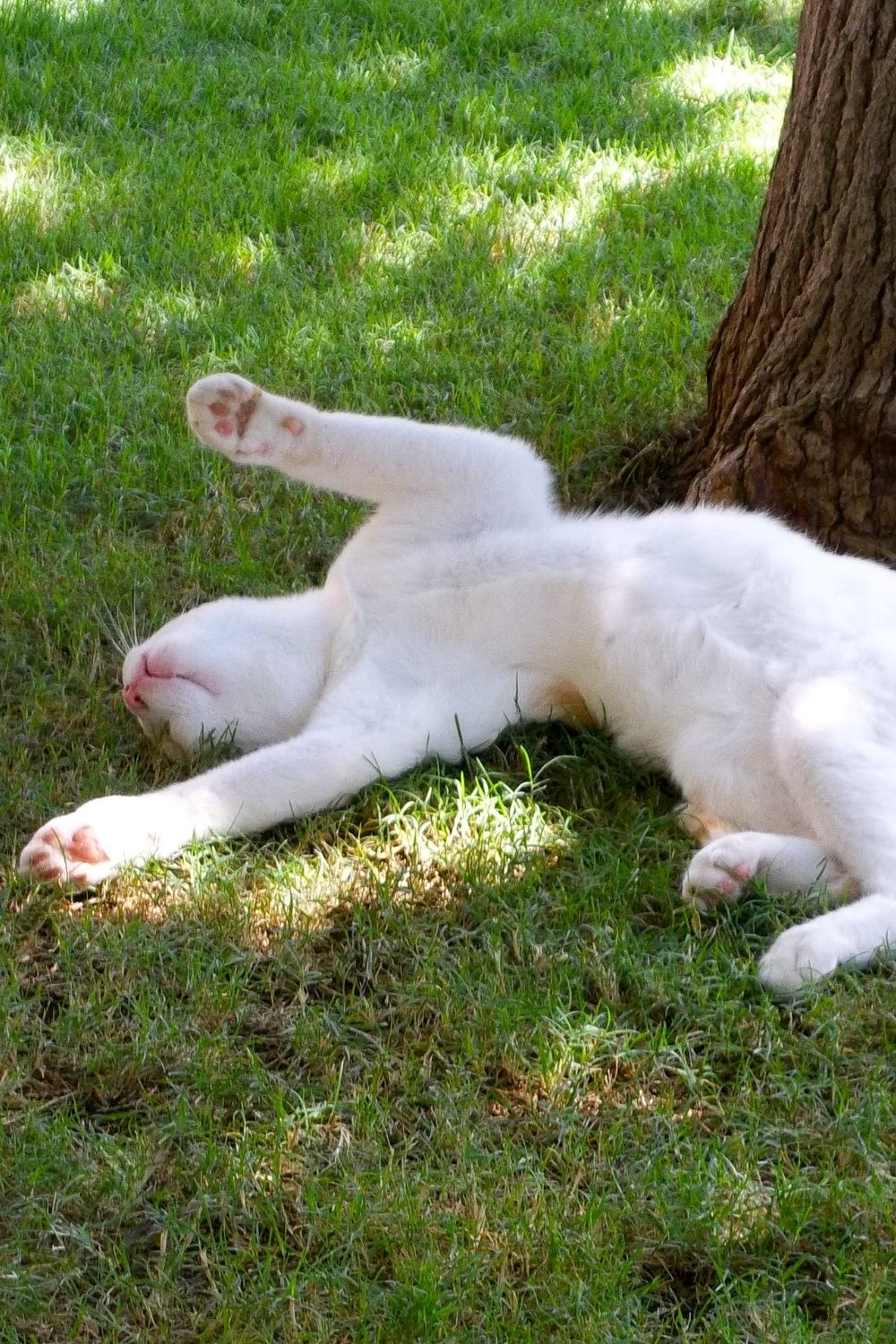
Cats who dream sometimes twitch in their sleep
This is when the cat has moved into the REM sleep cycle and their bodies respond with slight twitching.
5. Medical Twitching
The final reason is the one that scares all cat owners.
Some cats twitch convulsively while sleeping, not because of dreaming or brain development, but rather due to medical reasons.
Stroke, paralysis, epilepsy, seizures, and other causes such as brain trauma can all lead to violent twitching while sleeping.
Signs that your cat is having a seizure and not simply twitching while sleeping include:
- Their twitching is severe and violent in nature, and the cat seems unable to stop
- The cat is non-responsive to calls, touch, or environmental stimuli while they convulse
- Their faces contort into excessive “chewing or fighting” faces
- The cat may suffer bladder leakage or defecation while sleeping, and it may also salivate or drool excessively from the mouth
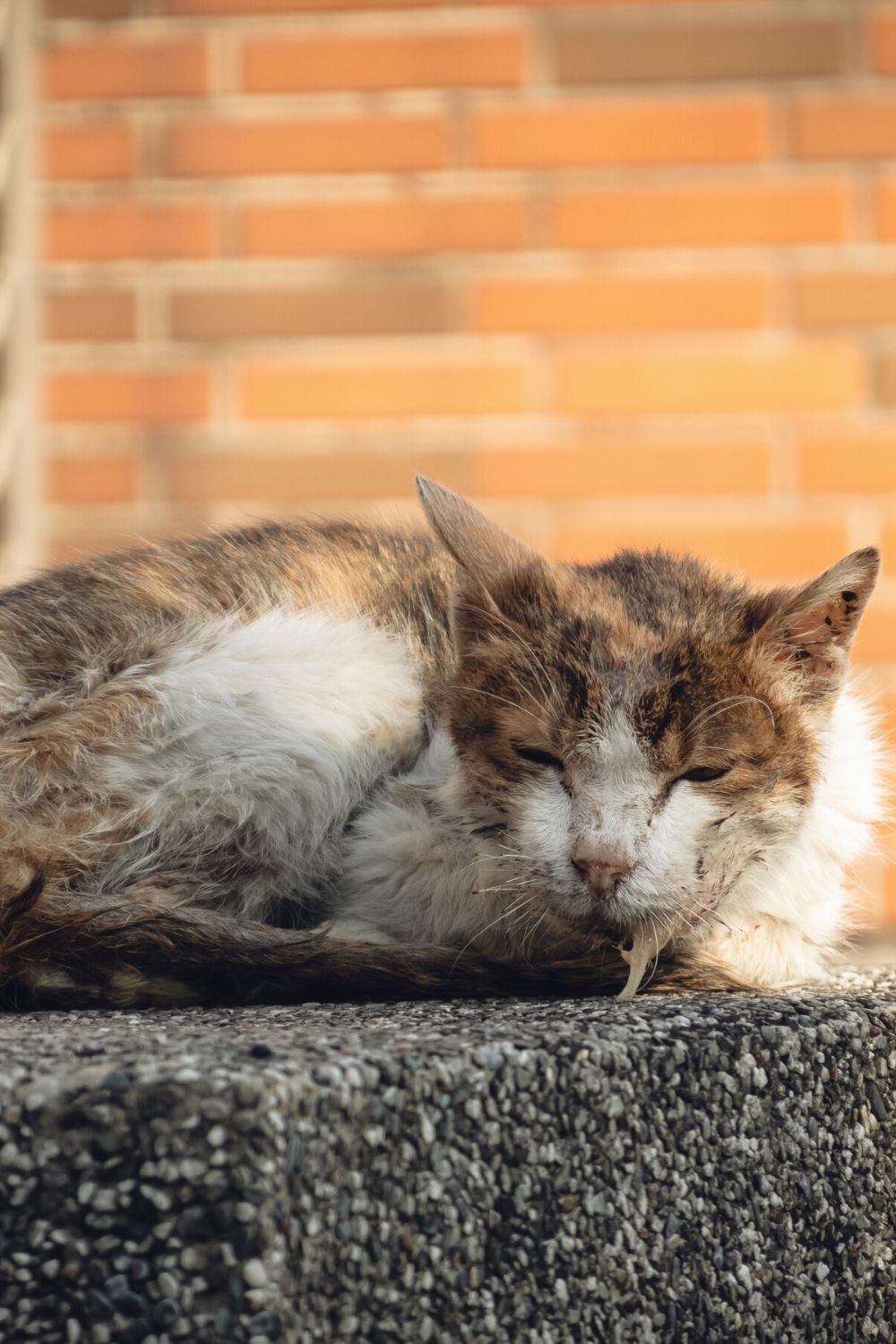
A cat who’s excessively drooling accompanied by excessive twitching is a medical emergency
Signs of Twitching While Sleeping
If you’re like me, you probably don’t yet know what sleep-twitching looks like.
There are various forms of sleep twitching your cat may experience.
Ear Twitching
Perhaps one of the mildest forms of twitching is ear twitching, where your cat’s ears may rotate, shake, or flatten and relax irregularly.
Air Kneading
This form of twitching is similar to a dog’s running paws, except the cat will curl and uncurl its paws.
The air twitching may accompany ear twitching and other forms of twitching.
Sounds and Air Sucking
My cat made the cutest little sucking sounds, which made me think she was busy suckling (since she is still a kitten).
There was also a lot of vibration of her whiskers happening at the same time.
Steps to Take When Your Cat’s Twitching Becomes Medical
When you notice your cat suddenly twitches more than usual when sleeping, or there is a strange new movement in their bodies, be sure to consult with your vet to investigate the possible causes.
1. Take note of the frequency of the cat’s convulsive twitching and whether they are responsive to sound at all.
2. It may also help to video your cat (for something more useful than TikTok). Showing the vet the recording can help them see what your cat is doing.
3. Pay attention if there are other side effects or symptoms that may be relevant.
Is your cat sounding like they are struggling to breathe, or do they suckle excessively with drool coming from their mouths?
Each sign can mean something.
4. Consult with your vet, being sure to inform them of all your cat’s behavior, when it started, how it progressed, and where you see them twitching or convulsing the most.
Frequently Asked Questions about Why Cats Twitch in Their Sleep
Should I wake my cat up if he’s twitching?
When a cat sleep-twitches, you should not wake them up unless there is a real emergency. The reasons for this include: not hurting the cat when they suddenly wake up to see whether there will be fishing in the area soon.
How do I differentiate between normal cat twitching and a seizure?
Twitching isn’t the only sign of a seizure in your cat. Instead, twitching would need to include other signs like drooling, muscle weakness, and incoordination. If you are worried your cat may be having convulsions be sure to consult your vet as soon as possible.
Final Thoughts on Why Cats Twitch in Their Sleep
If you’re like me, you’re madly in love with your cat. The reasons why they twitch may differ based on the cat’s age, condition, and health.
I now know how to keep a happy snoozing kitty.
In the future, I will pay better attention to why my cat twitches, inform my vet if I suspect the twitches are trauma-related, and enjoy my time with my furry feline friend.

